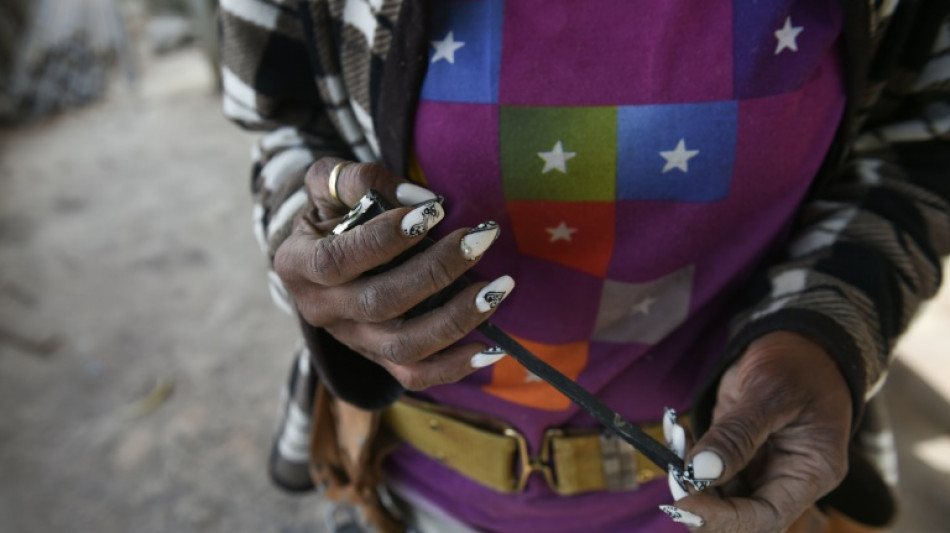
From homemakers to home builders: Venezuelan women breaking ground

Ursulina Guaramato and Claudia Tisoy, both homemakers in their forties, apply a special glue to a complex network of pipes in an apartment block they and other women are building with their own hands in Caracas.
On this project in Antimano, a poor neighborhood of the Venezuelan capital, 80 percent of the workforce is made up of women, most of them single mothers.
Some cut reinforcing bars, some prepare concrete mix and others lay pipes.
They are making use of a government program that encourages construction by providing materials and technical guidance to first-time builders at no cost in a bid to tackle an acute housing shortage in a country battling a severe economic crisis.
It was not planned that the workers on the Antimano project would be mainly women.
In Venezuela, a deeply Catholic and conservative country, construction work is still viewed as the domain of men.
"We live in a patriarchal society but we are breaking paradigms," Ayari Rojas, a spokeswoman for the builders, told AFP.
The development will have two structures of six stories each.
Most of the construction work has been completed and the first apartments of 95 in total are due to be finished this year.
The 75 workers on the project -- most of whom now live in cramped quarters shared with relatives -- are building these apartments for their own families.
But eight years ago, when they started, none knew anything about plumbing or masonry, let alone building plans or construction materials.
"Crafts and pastry used to be my thing," Guaramato said, smiling as she measured a piece of PVC pipe.
Now she is the on-site reinforcement bar (rebar) expert.
Tisoy said she was "proud to see so many women here learning."
"We are all here not just building homes, but a community."
She plans to move into the building with her four daughters and a one-year-old grandson.
- 'Warrior' -
The builders include nurses, teachers and beauticians.
Yrcedia Boada, one of the workers, told AFP the women are often at the receiving end of insults about their perceived "manliness" in a society rife with machismo.
"We have suffered horrible derogatory comments," she said.
The project has had to overcome numerous setbacks, not least delays due to the coronavirus pandemic, hyperinflation that has plagued the country for years, and international sanctions affecting the flow of goods, including building materials.
Luis Perez, Guaramato's 19-year-old son, is one of 20 men on the project.
He started to help out two years ago, has learned much about masonry and carpentry since, and hopes to study auto mechanics.
"It is the first time I have known a woman who is a rebar master and I feel very proud because she is my mother," he told AFP.
"My mother is a warrior."
D.Vanacore--PV
